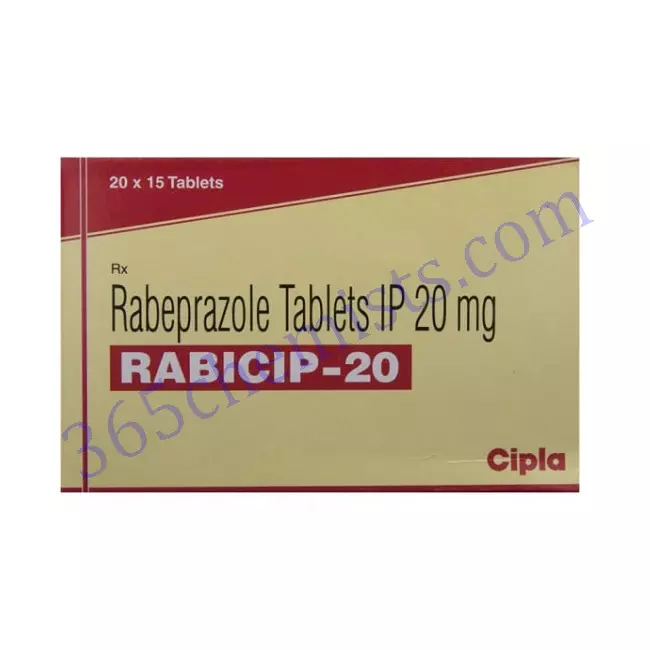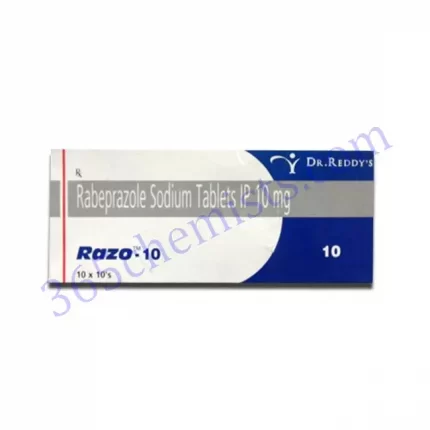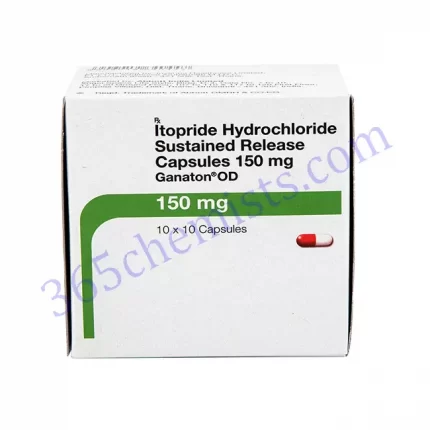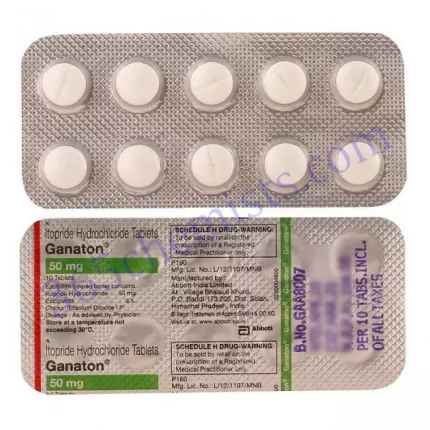Introduction
The proton pump inhibitors (PPIs) class of drugs includes Rabicip 20 mg Tablet. It is frequently given to treat illnesses like gastroesophageal reflux disease (GERD), peptic ulcers, and other ailments linked to acidity. Rabeprazole, the active component of Rabicip 20mg Tablet, relieves symptoms brought on by excessive acid production by lowering the amount of stomach acid produced.
How Does Rabicip 20mg Tablet Work?
The way that Rabicip 20mg Tablets function is by blocking the enzyme that is involved in the last stage of producing stomach acid. This causes the stomach’s production of acid to decrease, which helps relieve symptoms including heartburn, acid reflux, and stomach discomfort. Rabicip 20mg Tablet encourages the recovery of peptic ulcers and prevents their recurrence by lowering the stomach’s acidity.
Dosage and Administration
Tablets containing Rabicip 20 mg should be taken orally, often once daily before a meal. Depending on the patient’s condition and reaction to treatment, the dosage may change. It’s crucial to adhere to the proper treatment schedule and dose that your doctor has given. Never take more medication than is advised or stop taking it abruptly without first consulting your doctor.
Warnings and Precautions
It’s crucial to let your doctor know about any medical conditions you have before taking Rabicip 20mg Tablet, especially if you have liver illness or are on other medications. The effectiveness of Rabicip 20mg Tablet or the likelihood of side effects may be affected by interactions with other drugs. Your healthcare practitioner may advise you on how to use Rabicip 20mg Tablet properly and any safety measures that may be required.
Related product
Rabicip 20mg Tablet
Rabicip-L Capsule
Possible Side Effects
Although Rabicip 20mg Tablet is mostly well accepted, some people may experience negative effects like with any drug. Headache, vertigo, diarrhoea, and nausea are examples of typical adverse effects. These negative effects are often minor and short-lived. However, it’s crucial to get medical help if you develop severe or lingering adverse effects.
Rarely, Rabicip 20mg Tablet could result in more severe side effects such allergic responses or modifications to the liver’s function. Seek immediate medical help if you experience any adverse reaction symptoms, including as a rash, itching, swelling, or trouble breathing. It’s crucial to inform your healthcare practitioner of any unexpected symptoms or worries.
Frequently Asked Questions (FAQ)
1. What is the purpose of Rabicip 20mg Tablets?
Peptic ulcers, gastroesophageal reflux disease (GERD), and other acid-related conditions are all treated with Rabicip 20mg Tablet. It relieves symptoms including heartburn, acid reflux, and stomach pain by lowering the production of stomach acid.
2. How should I take a 20 mg tablet of Rabicip?
It is recommended to take one Rabicip 20mg tablet orally each day, preferably before a meal. Observe your healthcare provider’s dosage recommendations. It is crucial to swallow the tablet whole without chewing or crushing it along with a full glass of water.
3. Can I combine other drugs with Rabicip 20 mg Tablet?
All of the medications you are taking, including prescription, over-the-counter, and herbal supplements, should be disclosed to your healthcare physician. Rabicip 20mg Tablet and some drugs may interact, reducing the efficacy or raising the possibility of negative side effects. The proper administration of Rabicip 20mg Tablet in conjunction with other medications can be advised by your healthcare provider.
4. Do Rabicip 20mg Tablet adverse effects exist?
Rabicip 20mg Tablet adverse effects frequently include nausea, dizziness, diarrhoea, and headaches. These negative effects are often minor and short-lived. However, it’s crucial to get medical help if you develop severe or lingering adverse effects. Rarely, more severe side effects like allergic responses or modifications to liver function may be brought on by Rabicip 20mg Tablet.
5. Can I take Rabicip 20mg Tablet if I’m nursing or pregnant?
Before taking Rabicip 20mg Tablet, it’s crucial to let your doctor know if you are pregnant, trying to get pregnant, or nursing. They can assess the advantages and disadvantages of each potential treatment option and choose the one that is best for you.
Conclusion
The medicine Rabicip 20 mg Tablet is frequently used to treat conditions connected to excess acid in the body. It eases symptoms including heartburn, acid reflux, and stomach pain by lowering the production of stomach acid. However, it’s crucial to adhere to the recommended dosage, be aware of any possible interactions and adverse effects, and speak with your healthcare professional for specific recommendations and instructions. When administered under a doctor’s supervision, Rabicip 20mg Tablet can be a useful medication for gastrointestinal disorders caused by excess acid.
GERD and peptic ulcers can both be effectively treated with the use of the drug Rabicip 20mg Tablet. It aids in symptom relief and healing by lowering stomach acid production. However, it’s crucial to take the prescription as directed and adhere to your doctor’s advice. Ask your doctor for individualised guidance and recommendations if you have any questions or concerns about Rabicip 20mg Tablet.












